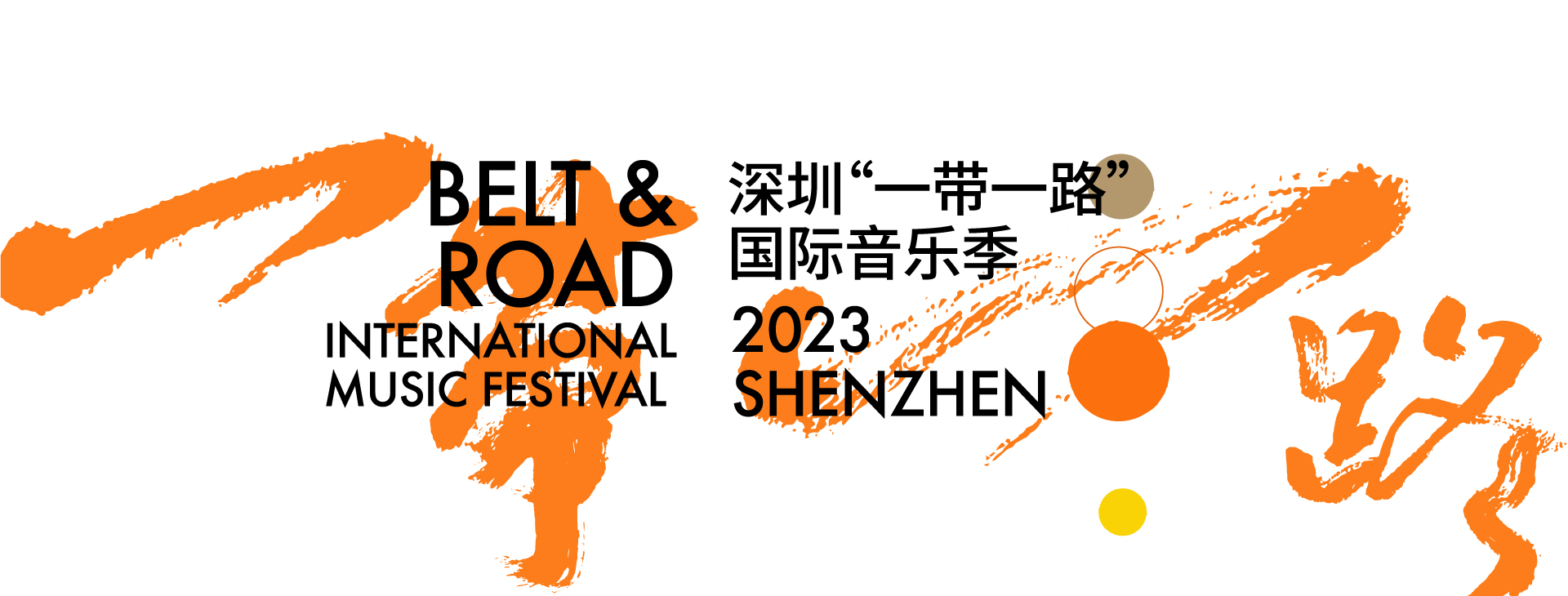

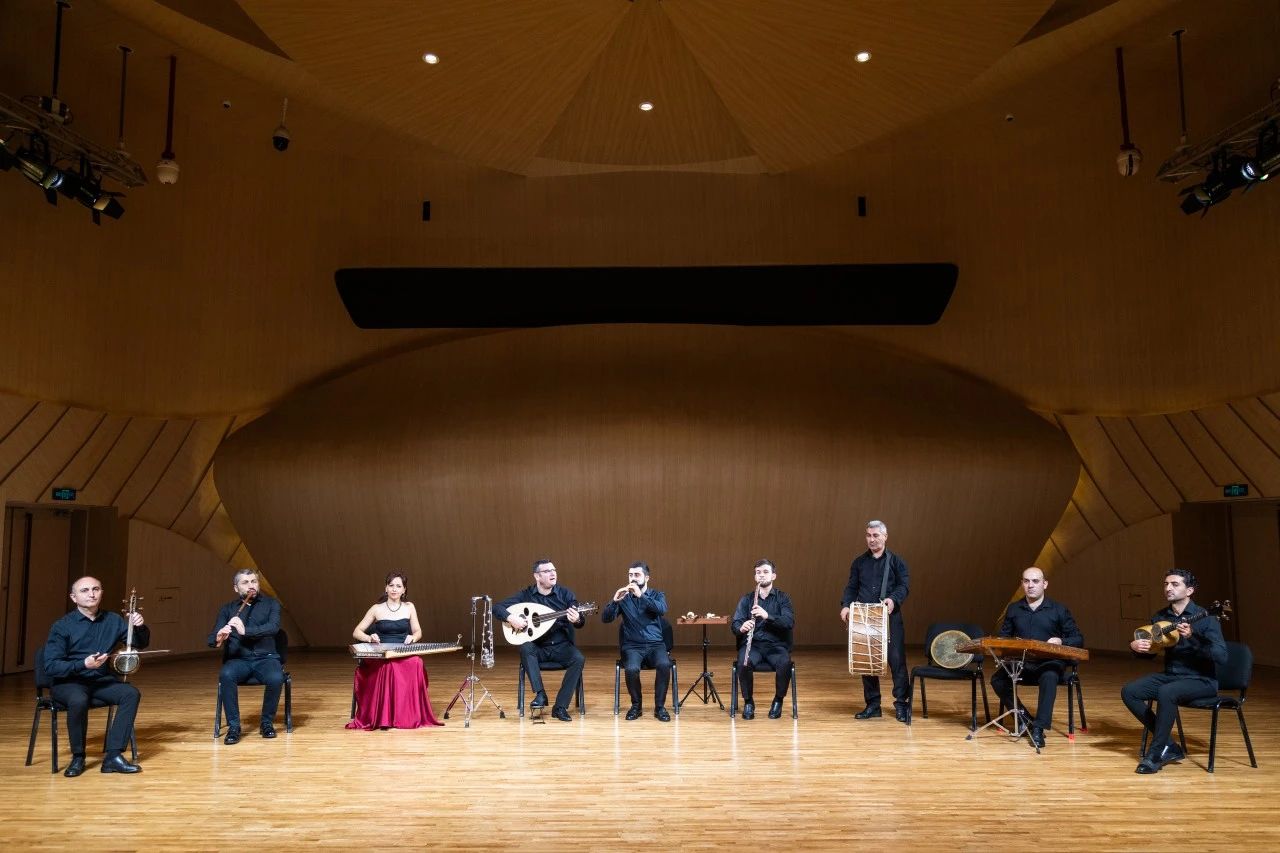
Outside, innovation and technology lit up the night in the city, while indoors, instruments and music awakened the light of history. On the evening of October 21, Longgang became brilliantly starry under the intersection of time and space as well as the clash of cultures.
There is such an orchestra in the world that has spent decades exploiting and recreating ethnic ancient instruments from North Africa, Central and Western Asia, and Eastern Europe. It takes the audience on a journey through the millennia, traveling through Caucasian snow mountains and ancient Babylonian civilization, and exploring the path to develop ethnic music. This is the Gurdjieff Ensemble. At the invitation of the 2023 Shenzhen Belt & Road International Music Festival, the orchestra staged the Ancient Sounds of the Silk Road Concert on October 21 at the Longgang Cultural Centre. The charismatic and exquisite performances of the musicians helped to explore the history of human civilization and music in Asia and trace the origins and inheritance of ethnic instrumental music.
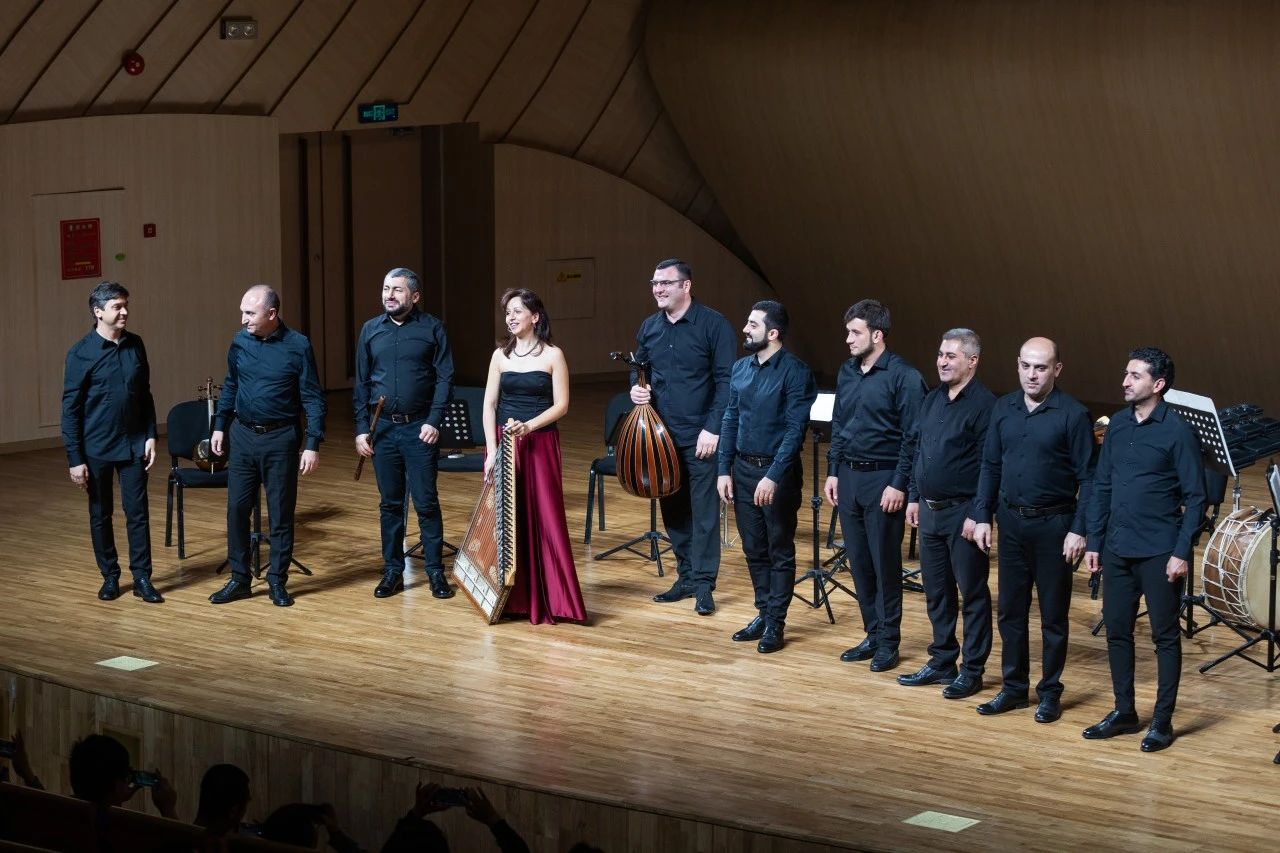
Music with Stories that Have Traveled through the Millennia.
As one of the most influential ethnic orchestras in today's music world, the Gurdjieff Ensemble brings together ancient traditional instruments and performers from countries and ethnic regions in Eastern Europe, the Middle East, and Central Asia. Levon Eskenian, Armenian composer and musicologist, founder of Gurdjieff Ensemble, created and rearranged the music of the ancient Middle East and Eastern Europe to present deep historical and cultural connotations in a refined form of chamber music orchestra at the modern music stage.

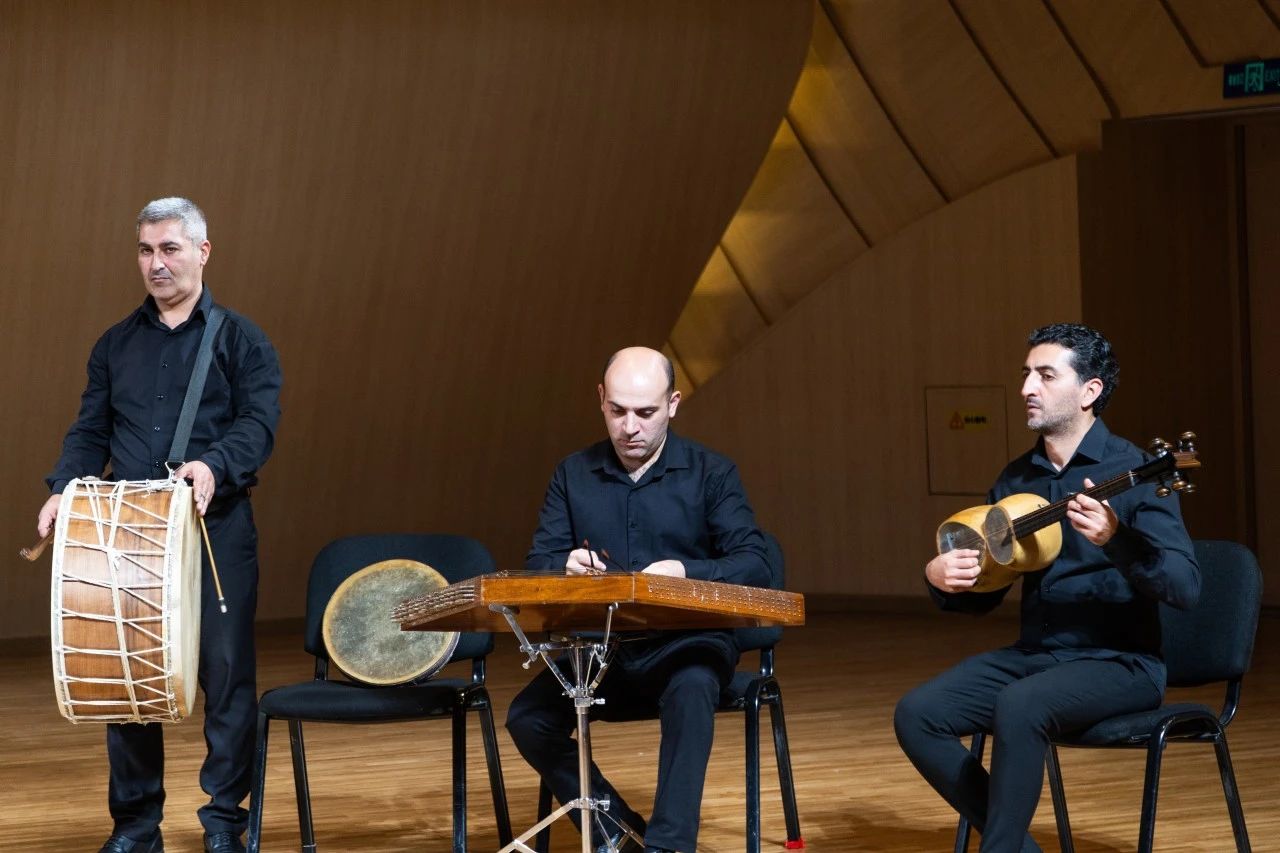
Most of the Chinese folk musical instruments, such as suona, guanzi, pipa, and erhu, are "brothers and sisters" with the same roots and origins as many of the featured musical instruments of the countries along the Silk Road. With cultural integration, mutual influence, and reference, they have become the unique musical treasures of each country today. During the concert, the orchestra explained to the audience the history, style, music, and culture of Babylonian, Syriac, Armenian, Caucasian, and Chinese civilizations in five periods and five different regions in the form of a wonderful performance plus an in-depth explanation. During the interaction between Cai Shang, the concert's host/narrator, and the performers, the audience learned about the past and present of the nine ancient instruments on stage and intimated contact with the mysterious and atmospheric elegance of the distant past.
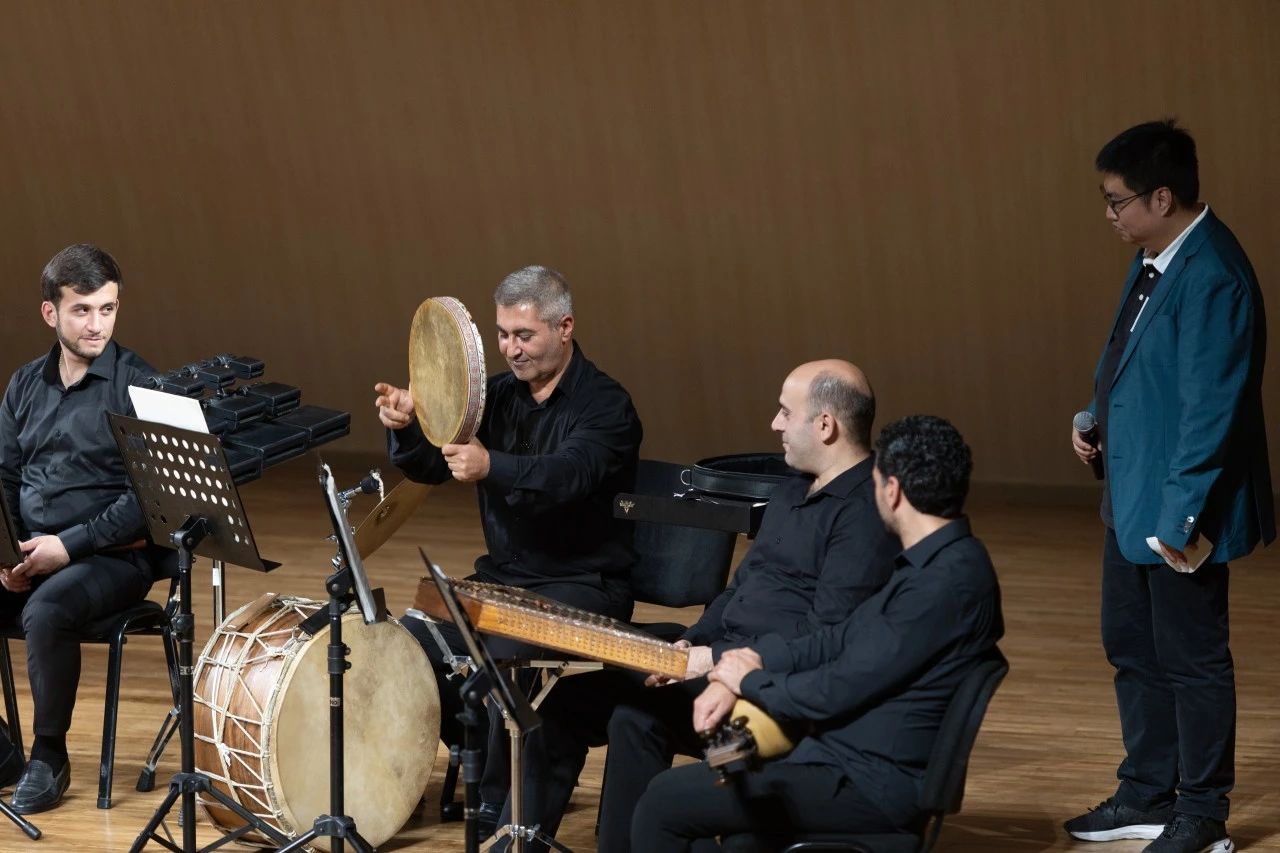
Musical Instruments with the Sound of Cultural Communication.
The melody of the dulcimer may have been heard in the courtyards of the royal palaces on the Iranian plateau. The crisp classical guitar was born in the Arabian desert where the sand filled the sky.
Since its inception, the Gurdjieff Ensemble has been turning the world's music scene on its head with its traditional instrumental performances and superb arrangements of ancient music that blend the history of the East and the West. The integration and reference traversing different civilizations has written the most magnificent chapter in the story of the Belt & Road. At the concert, the audience saw up close and personally nearly 20 kinds of ancient ethnic instruments from Eastern Europe, the Middle East, and Central Asia, recreating the brilliant artistic civilizations in the long history of the Eurasian continent for thousands of years.
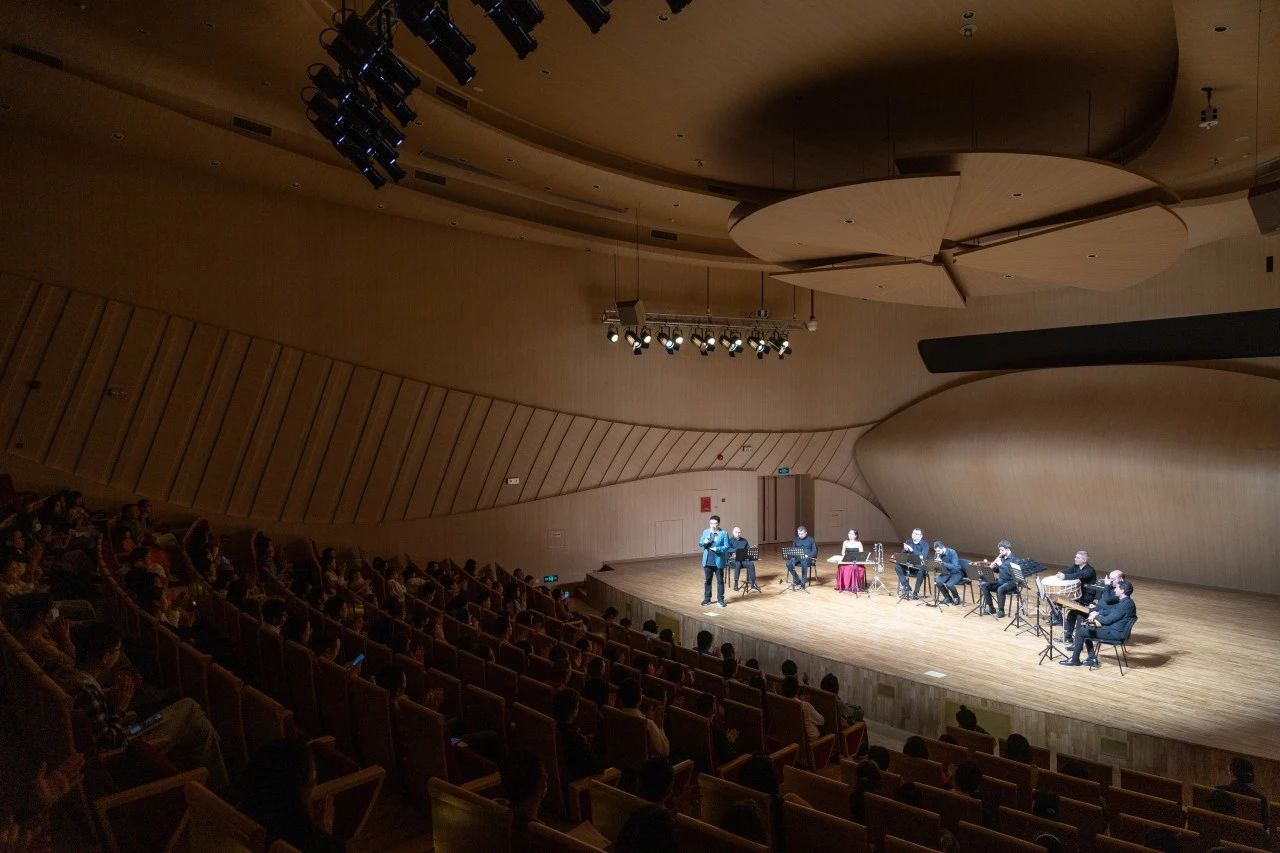
What kind of ideorealm will A Moonlit Night on the Spring River, a Chinese classical programme, foster through the exotic instruments by performers? As the familiar melody echoed over the concert hall, a picture of the moonlit night on the spring river, far away and indistinct, emerged in the audience's mind. The audience in the melodious rhythms seems to see the flourishing scene of Chinese civilization spreading in Europe during the Tang Dynasty.
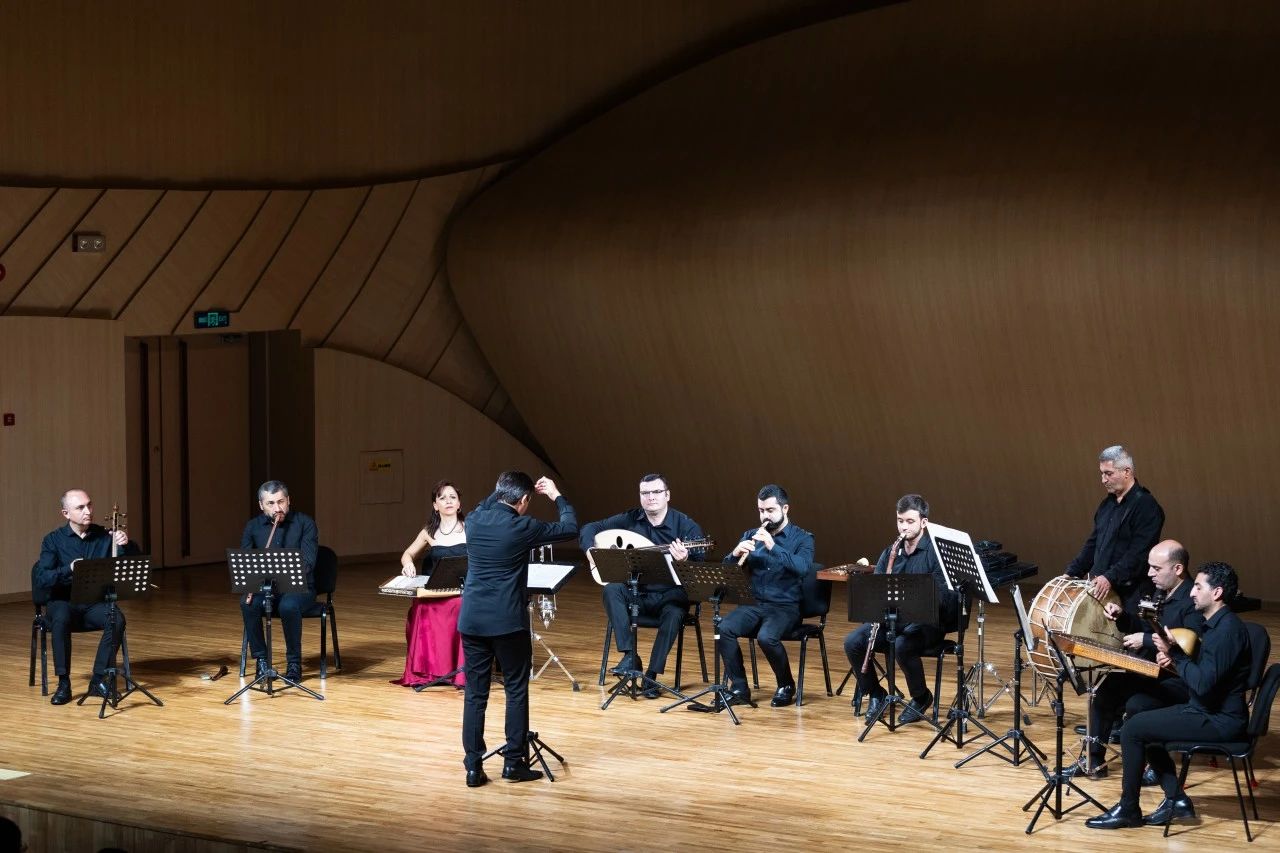
"The concert was both educational and entertaining. Duduk is the 'ancestor' of the Chinese guanzi, zourna is the 'ancestor' of the Chinese suona, and pku is the 'ancestor' of the Scottish bagpipe... It has never occurred to me that the musical instruments that have been carried over from ancient times to the present day in China also have their own 'roots'. Today, not only can I catch a glimpse of them, but I can also 'smell' their melodiousness." Ms. Li, one of the audience, said.
